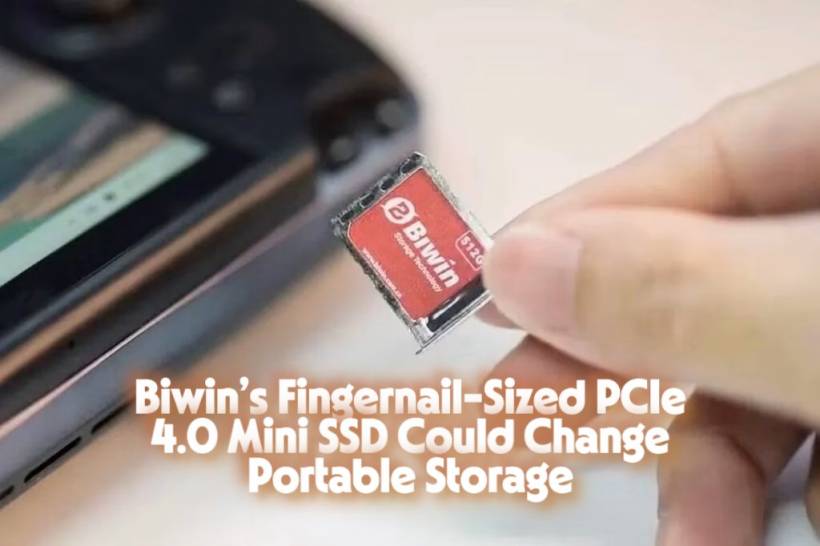A New Form Factor in the Making - Remember back in April when Biwin unveiled its tiny SSD that was no bigger than a fingernail? At the time, it sounded almost futuristic. Now, just a few months later, the company has already moved past concept stage and is distributing working samples to select manufacturers. That means we're getting closer to seeing this little piece of tech in real-world devices.
Biwin is simply calling it the Mini SSD, but some partners have already nicknamed it the "1517", which reflects its measurements: 15mm x 17mm x 1.4mm. To put that in perspective, it's smaller than a Malaysian 1-sen coin and only a fraction larger than today's microSD cards.
Speed and Capacity That Outpaces microSD
Despite its minuscule size, the Mini SSD is no slouch. It uses PCIe 4.0 x2, offering sequential read speeds up to 3,700MB/s and write speeds up to 3,400MB/s. Storage capacities will start at 512GB, with 1TB and 2TB options also on the way.
For comparison, the much-hyped MicroSD Express cards—like the ones expected to work with the Nintendo Switch 2—still hover under 1,000MB/s. In other words, Biwin's Mini SSD could be more than three times faster, making it a serious contender for next-gen portable devices.
Slotting in Like a SIM Card
What really sets this storage apart is not just its speed, but its form factor. Biwin designed the Mini SSD to be inserted into devices much like a SIM card. In fact, handheld gaming console maker GPD showcased a demo where its upcoming Win 5 console uses the slot-and-click style mechanism to accept the Mini SSD.
It's worth noting that, while the card looks similar in size to microSD, the interface is completely different. That means this new slot design will be exclusive to the Mini SSD, requiring device makers to build dedicated support into their hardware.
Early Adoption in Gaming Devices
Biwin has already lined up early adopters for this storage innovation. Apart from GPD's Win 5, another Chinese handheld console, the OneXPlayer Super X, is also set to integrate this new format. This makes sense, since handheld consoles need fast, compact, and easily swappable storage to keep up with modern gaming demands.
Pricing Still a Mystery
As exciting as this technology sounds, Biwin has yet to reveal one crucial detail: pricing. With SSD prices fluctuating in recent years, it'll be interesting to see how Biwin positions the Mini SSD against existing storage solutions. If it's priced competitively, this could open the door for wider adoption across handheld consoles, laptops, and maybe even mobile devices.
Final Thoughts
Biwin's Mini SSD feels like a natural evolution of portable storage—small, powerful, and designed for devices where space is at a premium. It's not just a new product; it's potentially a new storage standard. If the adoption continues beyond a handful of Chinese handhelds, we might just see the humble microSD finally meet its match.





Comments